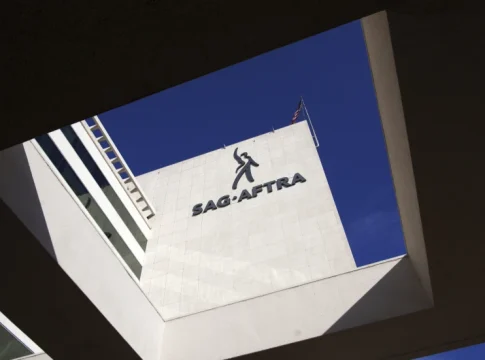Hollywood’s Video Game Performers Reach Tentative AI Contract
An End in Sight for the Strike?
The ongoing strike by Hollywood’s video game performers may soon come to a close, as the Screen Actors Guild-American Federation of Television and Radio Artists (SAG-AFTRA) has announced a tentative agreement with major video game companies. This milestone comes nearly a year after actors walked off the job, fueled by concerns surrounding the use of artificial intelligence (AI) in the industry.
The Catalyst: AI Concerns
Performers initiated their strike in July 2024 when negotiations hit an impasse over essential AI protections. SAG-AFTRA highlighted that the unregulated deployment of AI technology poses significant risks to video game actors, arguably even greater than those faced by their counterparts in film and television. With advancements in AI making it easier to create lifelike digital replicas of actors’ voices and appearances, there is a genuine fear that game developers could bypass human talent entirely.
"The unchecked use of AI could displace performers by enabling studios to replicate an actor’s voice or likeness without their consent," said Duncan Crabtree-Ireland, SAG-AFTRA’s National Executive Director and Chief Negotiator. The need for clear safeguards has never been more pressing as the entertainment industry rapidly incorporates new technologies.
Negotiations with Industry Giants
The union has been in talks with an industry bargaining group that includes notable companies like Activision, Electronic Arts, and Epic Games. These giants play a pivotal role in shaping the landscape for video game performers, making the outcome of these negotiations especially critical.
While details of the tentative agreement are still under wraps, SAG-AFTRA expressed optimism that the terms could establish necessary "AI guardrails" to protect the careers and livelihoods of performers in the evolving AI landscape.
Moving Forward: Next Steps
The union’s leadership has confirmed that while there is hope for a resolution, members will remain on strike until a formal suspension agreement is solidified. The deal still necessitates approval from the National Board and subsequent ratification by the union membership. Historical context suggests that the last major strike in 2016 resulted in important benefits for voice actors, including a new bonus compensation structure.
Looking Ahead: AI’s Role in Entertainment
As we stand on the cusp of a new era where AI technology continues to intertwine with the entertainment industry, the implications of this tentative deal reach far beyond just the video game sector. The results could set important precedents for how human talent navigates the complexities of AI in creative fields.
The dialogue ignited by this strike reflects broader societal concerns about the ethical use of AI in entertainment—and its ability to potentially undermine the very talent that brings our favorite characters to life. As negotiations progress, all eyes will be on how this agreement determines the future landscape of performance art amidst rapidly evolving technology.
Stay tuned for updates as the situation unfolds and the union approaches final decisions that could reshape the video game performing arts forever.

Writes about personal finance, side hustles, gadgets, and tech innovation.
Bio: Priya specializes in making complex financial and tech topics easy to digest, with experience in fintech and consumer reviews.

